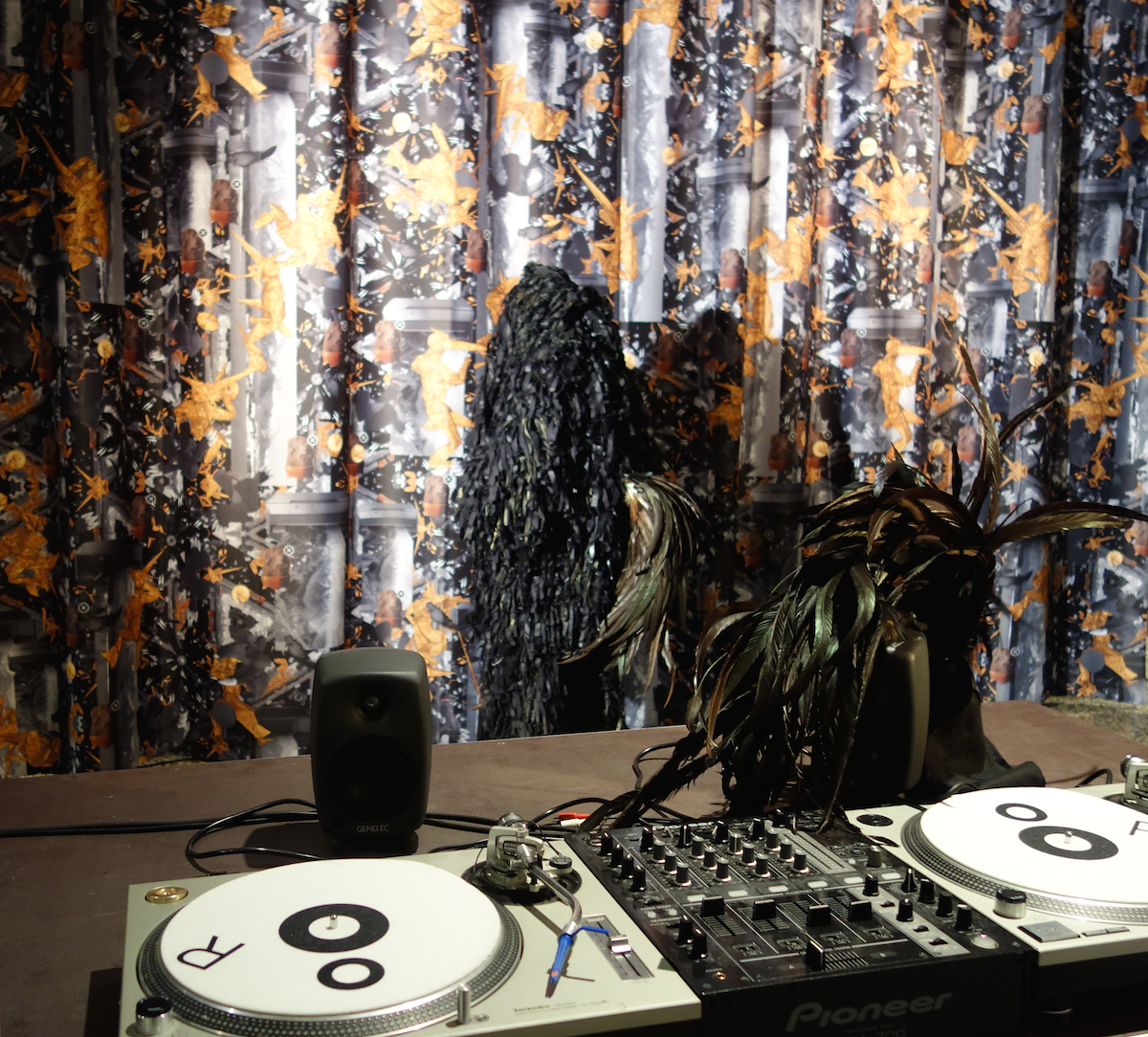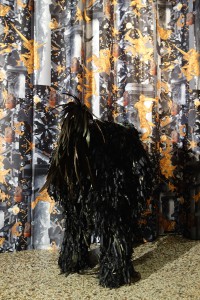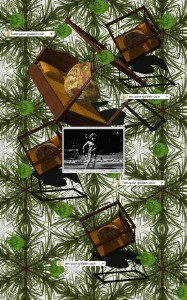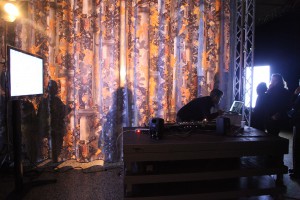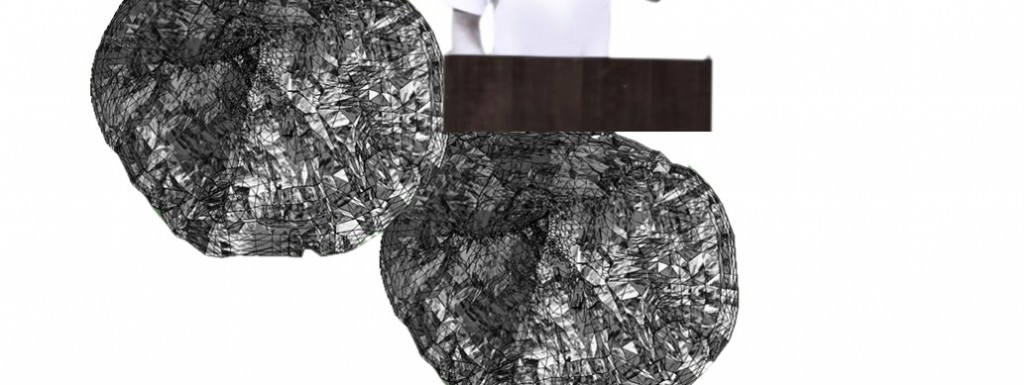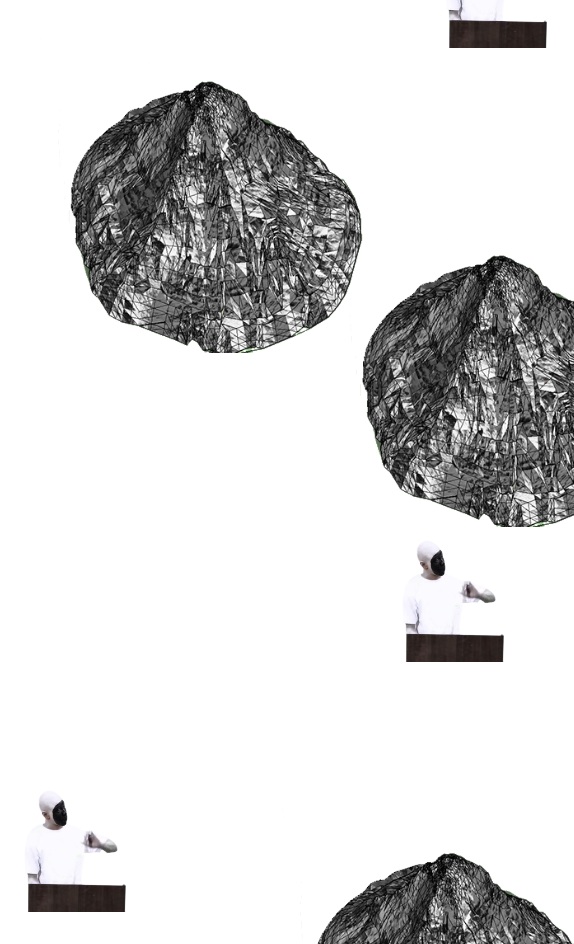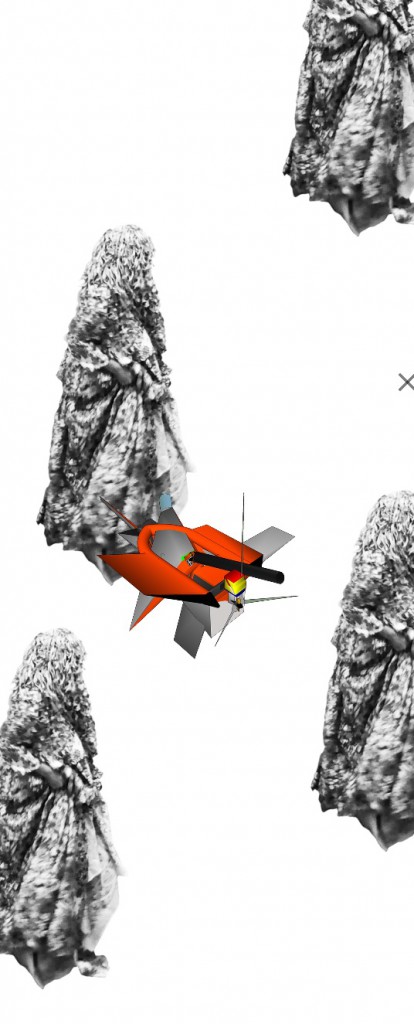b(l)ack dada: drone nonperformance DADA Universal, Landesmuseum Zürich, 3.3.2016, 19h live assemblage mit knowbotiq, dj fred hystère, teresa vittucci software: christoph stähli
b(l)ack dada encounters the 100th anniversary of DADA Zurich with postcolonial and queer inscriptions into this historicized Avantgarde. Epistemic disobedience crosses the city`s festive repetition of the past, carnivalesque fugitivity strikes (neo)coloniality, confronts Dadaist negrophilia, parodic tactics contests the desire for ferocity, innocence and lack of restraint. b(l)ack dada begegnet dem 100-jährigen Jubiläum der DADA-Zürich-Bewegung mit postkolonialen und queeren Verunreinigungen dieser historisierten Avantgarde. Epistemischer Ungehorsam trifft auf die festliche Wiederholung von Vergangenem, karnevaleske Flüchtigkeit auf (Neo)Kolonialität, auf dadaistische Negrophilie, parodistische Taktiken auf ein Verlangen nach Wildheit, Unschuld und Hemmungslosigkeit.
Salon Suisse, Venice Biennal 2015; S.O.S. DADA, The World is a Mess Palazzo Trevisan, 15.10.15 b(l)ack dada presents: Helvetia, do you feel the melancholia? metabolisms and kotomisi un.informings live-staging: knowbotiq, DJ Fred Hystere postdigital animations, voices, commodities, ornaments, tracks and mixes
b(l)ack dada presents:metabolism – kotomisi un.inform live-staging: knowbotiq, DJ Fred Hystere postdigital animations, voices, commodities, ornaments, tracks and mixes b(l)ack dada takes the 100th anniversary of DADA Zurich as an opportunity to pollute the historicized artistic avant-garde movement with postcolonial and queer recontextualizations. In live situations knowbotiq delinks and re-assembles history: Parodistic and carnivalesque survival practices at times of coloniality cross Dada Negrophilia and its desire for a lustful wildness without constraints or guilt. Based on a kotomisi, a traditional garment of female slaves in the former Dutch colony of Suriname, knowbotiq addresses strategies of creolization of femininity (formlessness, in- and hyper-visibility, parody, desexualization). Due to their forced plantocratic speechlessness the slaves developed clandestine visual forms of communication via the draping, folding, layering and knotting of the clothing. The patterns of the fabrics, as well as the cuts, articulated the conflict with a colonizing and exploiting European culture and its aesthetic imprints. Rococo clothing and late Baroque line dances were matrices for parodistic appropriations that led to the absurdly voluminous and defeminized silhouette of the “Mammy” figure. These body and clothing politics also point to transcultural relationships of Swiss protagonists: textile producers participating in the triangular trade, investors of slave ships, and ethnographic and missionary expeditions. The universalistic and colonial claims of the Swiss bourgeoisie, their anthropological knowledge productions and explorations opened up a metabolism which today is processed further through the Swiss-based global commodity trade, and which makes it possible to retell the historical complexity of DADA. Helvetia, do you feel the melancholia? b(l)ack dada nimmt das 100-jährige Jubiläum der DADA-Zürich-Bewegung zum Anlass, mit postkolonialen und queeren Rekontextualisierungen Verunreinigungsarbeiten an dieser historisierten künstlerischen Avantgarde vorzunehmen. In einer Live-Situation wird in einer Praxis des vielfältigen Wieder-Aufführens von Geschichte „epistemischer Ungehorsam“ betrieben: Parodistische und karnevaleske Überlebenspraxen kreuzen DADAs Negrophilie und seine Wünsche nach einem lustvollen und wilden Fest ohne Hemmungen. Anhand eines kotomisi, eines traditionellen Kleidungsstücks weiblicher Sklaven in der ehemaligen niederländischen Kolonie in Südamerika, Surinam, thematisiert knowbotiq Strategien der Kreolisierung von Weiblichkeitsbildern (Formlosigkeit, Un-/Hyper-sichtbarkeit, Parodie, Entsexualisierung). Wegen der Sprechverbote und den Sprachlosigkeiten zur Zeit der Sklaverei wurden stellvertretend visuelle Formen der Kommunikation über das Drapieren, Falten, Schichten und Knoten der Kleidung entwickelt. Die Muster der Stoffe und die Schnitte artikulierten die Auseinandersetzungen mit einer von Kolonialität bestimmten europäischen Kultur und ihren damit verbundenen ästhetischen Prägungen. Rokokokleidung und spätbarocke Schreittänze waren Matrizen für eine parodistische Aneignungskultur, die zur absurd voluminösen Form der „Mammy“-Figur führte. Diese Kleiderpolitiken verweisen aber auch auf transkulturelle Relationen zu Schweizer Protagonisten: zu den am Dreieckshandel beteiligten Textilproduzenten und Investoren von Sklavenschiffen, zu den ethnographischen Expeditionen und zu den Missionarswerken. Die universalistischen und kolonialen Ansprüche des Schweizer Bürgertums, seine anthropologischen Wissensproduktionen und Forschungsreisen eröffneten einen Stoffwechsel, der heute durch den globalen Rohstoffhandel fortgeschrieben wird und von dem aus die historische Komplexität von DADA neu erzählt werden kann. Melancholia, wo bist du? 

